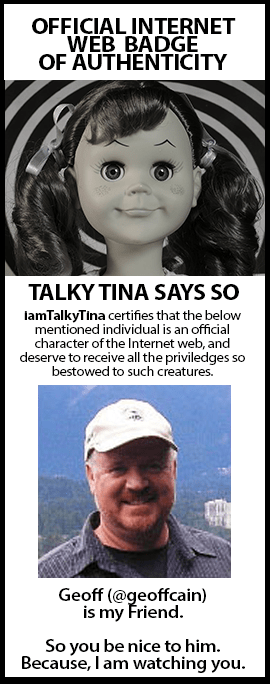“It is the essence of certainty to be established only with reservations.”
― Maurice Merleau-Ponty
Definitions matter. In the September issue of the International Review of Research in Open and Distributed Learning vol. 19, no. 4, David Wiley and John Hilton published a paper “Defining OER-Enabled Pedagogy.” As a humble practitioner of education, I do not find the term or the definition useful or accurate. It is a narrow definition that only further commodifies education.
The term “OER-Enabled Pedagogy” is not useful because we already have a term “open pedagogy.” For myself, it is not a vague term. There are years of research on open pedagogy. Yes, the term is used in many ways but so is the word “open” and the word “pedagogy.” As discussed in the Open Pedagogy Notebook ““Open Pedagogy” as a named approach to teaching is nothing new. Scholars such as Catherine Cronin, Katy Jordan, Vivien Rolfe, and Tannis Morgan have traced the term back to early etymologies. Morgan cites a 1979 article by the Canadian Claude Paquette: “Paquette outlines three sets of foundational values of Open Pedagogy, namely: autonomy and interdependence; freedom and responsibility; democracy and participation.” I think it is important that the term “Open Pedagogy’ remains broad because it can then account for a wide variety of practices. David Wiley himself has contributed significantly to the discussion of Open Pedagogy in the past – I particularly appreciate his discussions contra the “disposable assignment.”
OER-Enabled Pedagogy implies that there is a “Commercial Textbook-Enabled Pedagogy” and no matter what Cengage or any other publisher tells you, there is no such thing. A textbook is not a course. Education, real education, is not a commodity. The term “OER-Enabled Pedagogy” focuses on the object: “OER,” not teaching and learning, which is pedagogy. There are OER-enabled practices, just as there are face-to-face classroom practices or online teaching practices. Of course, my definition of teaching or learning has a lot in common with Grotowski’s definition of theater in “Towards a Theater of the Poor”: theater starts with two people in chairs facing one another; everything else is window dressing. Basically theater occurs where ever two or more are gathered. Things like sets in the end are extraneous. Theatre, like the teaching and learning process, is a series of choices about authenticity, communication, and expression.
I can practice Open Education without an OER and without discussing permissions. There are many educational practices that do not rely on copyright or OER, and yet, I would define them as part of Open Pedagogy. This is why I say the definition is too narrow. My students and I have a discussion about the impact of tariffs, they go out and scour the newspapers and journals and come back with their thoughts and reactions. They then write letters to congressmen. They do something about what they are thinking about. I am oversimplifying my assignments but I long ago learned that if you want to keep the curriculum fresh, don’t rely on a two to five year old textbook to keep your students abreast of what is happening in the world. Why would I limit my definition of Open Pedagogy to how I relate to a commodity or an object? I would be happy to discuss how OER can enable my teaching practices but OER is not a pedagogy, not even the permissions that OER allows is a pedagogy. Someone can use OER, realize the full potential of the permissions in their course, and still serve up a bad course.
One of the ironies of this is that I participated in a MOOC that had as one of its outcomes to come up with some examples of student work that was enabled by OER in order to come up with a definition of OER-Enabled Pedagogy. Even back then I was not really impressed with the idea because the work did not include discussions of engagement or interactivity, which from research in online teaching and learning, we know are some of the factors in student success in face-to-face or online learning. It is funny that the world of instructional design and OER is so small that I might have contributed in a tiny way to this.
The fact that “Open Pedagogy” has a complicated and multifarious definition and a past is a good thing. It means that as educators we are on to something. The defining and redefining hone the thoughts about what Open Pedagogy is or could be. That is what academics are supposed to do. I don’t object to neologisms per se or “OER-Enabled Pedagogy” itself – I just find it odd when someone has to invent a word to describe something that people have already been doing while using a term that seemed adequate to describe the practice: “Open Pedagogy.”
I don’t see how this term actually clarifies anything. If you see it in any other way than an attempt to further control the narrative around OER and rewrite history, or if you feel that education should be transformative and not a transaction, please feel free to comment below.




